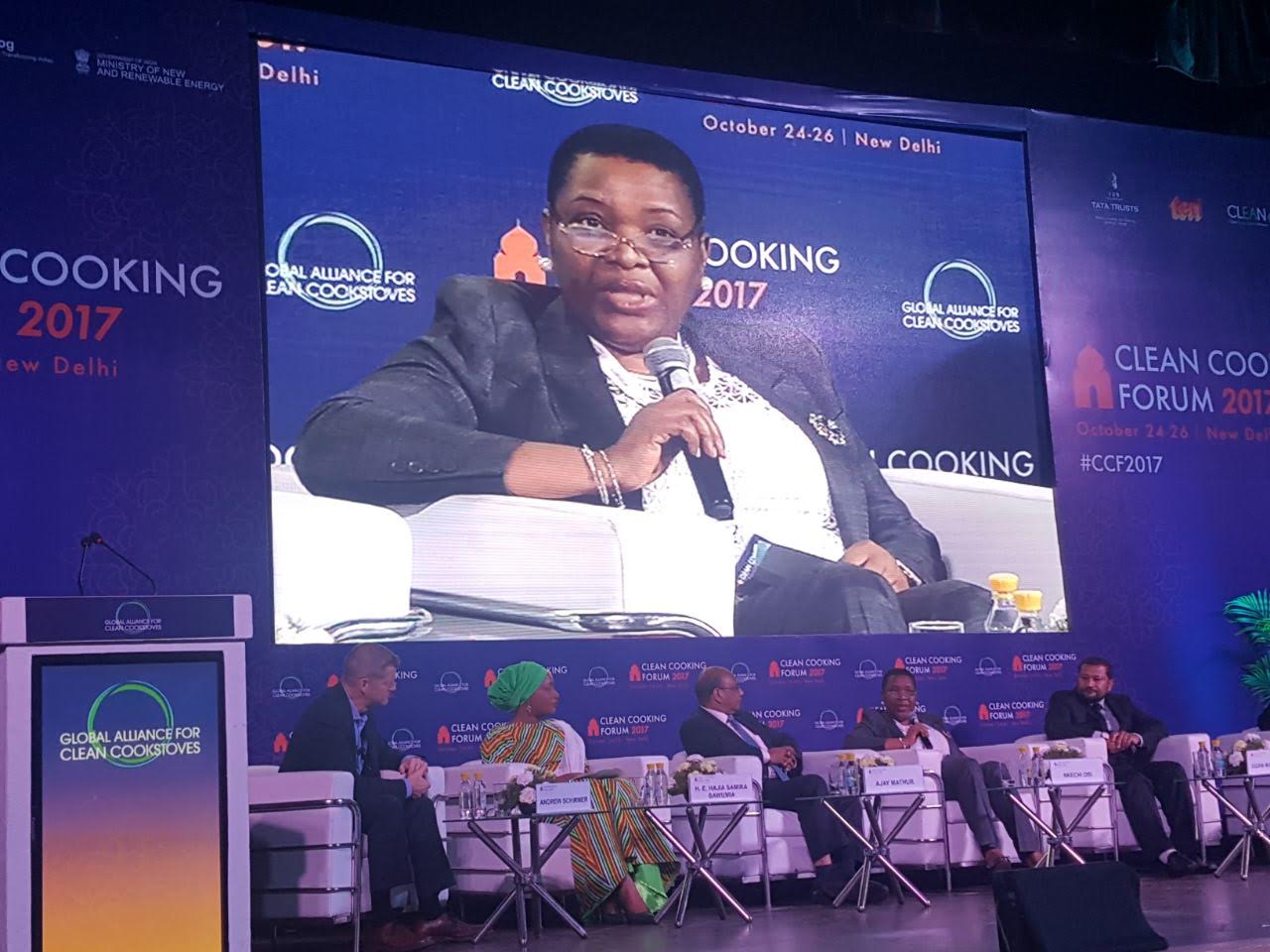Nkechi Obi, Executive Vice-Chairman, Techno Oil Limited and other discussants at the 2017 Clean Cooking Forum of the Global alliance for cook-safe held in New Delhi, India on October 24th – 26th
Congratulations, Nkechi. We know you are committed to providing clean and safe cook stoves throughout Africa and the world!
Over the past decade, research has shown a dramatic drop in the amount of household air pollution coming from inside Delhi. Since 2007, the contribution of household air pollution to ambient air pollution has fallen around 40%-50%. The improvement is due in large part to people switching from traditional, solid fuel-burning chulas to cleaner, more efficient cooking fuels such as LPG and electricity, which are used by more than 80% of households and commercial entities.
From National Geographic:
On Easter Sunday morning, in the small town of San Antonio Aguas Calientes in central Guatemala, Elbia Pérez and her sister, daughters, and 18-month-old grandson are crowded around their kitchen table. On the table, a large pot of tamales, handfuls of spicy meat and corn dough wrapped in plantain leaves, stands waiting to be steamed. The room is filled with talk, laughter, and smoke—gritty, eye-watering smoke that sticks in the throat and provokes deep, scratchy coughs.
The problem isn’t that the family lacks a functioning stove. In fact the aluminum-sided kitchen—part of a compound that shelters 45 extended-family members—contains three. But the two-burner gas stove is out of fuel, and the Pérez family can’t afford to fill it. Their efficient woodstove, a knee-high concrete cylinder donated by an aid group called StoveTeam International, is too small to support the tamale pot. So, as she does about once a month, Perez has fired up the old wood-burning stove, a crumbling, chimney-less brick ruin whose smoke pours directly into the unventilated kitchen. Everyone notices the smoke, but it’s a familiar annoyance—and compared with the daily challenge of affording food and fuel, it’s a minor one.
Some three billion people around the world cook their food and heat their homes with open or barely contained fires, and while the smoke dissipates quickly, its accumulated costs are steep. The typical cooking fire produces about 400 cigarettes’ worth of smoke an hour, and prolonged exposure is associated with respiratory infections, eye damage, heart and lung disease, and lung cancer. In the developing world, health problems from smoke inhalation are a significant cause of death in both children under five and women. “The first thing we swallowed every morning was smoke,” remembers Marco Tulio Guerra, who grew up in rural eastern Guatemala and whose brother was severely burned as a child by the family cooking fire. To fuel the smoky fires, families can spend 20 hours a week or more gathering wood, time that might otherwise be spent at school, at work, or simply at rest.



